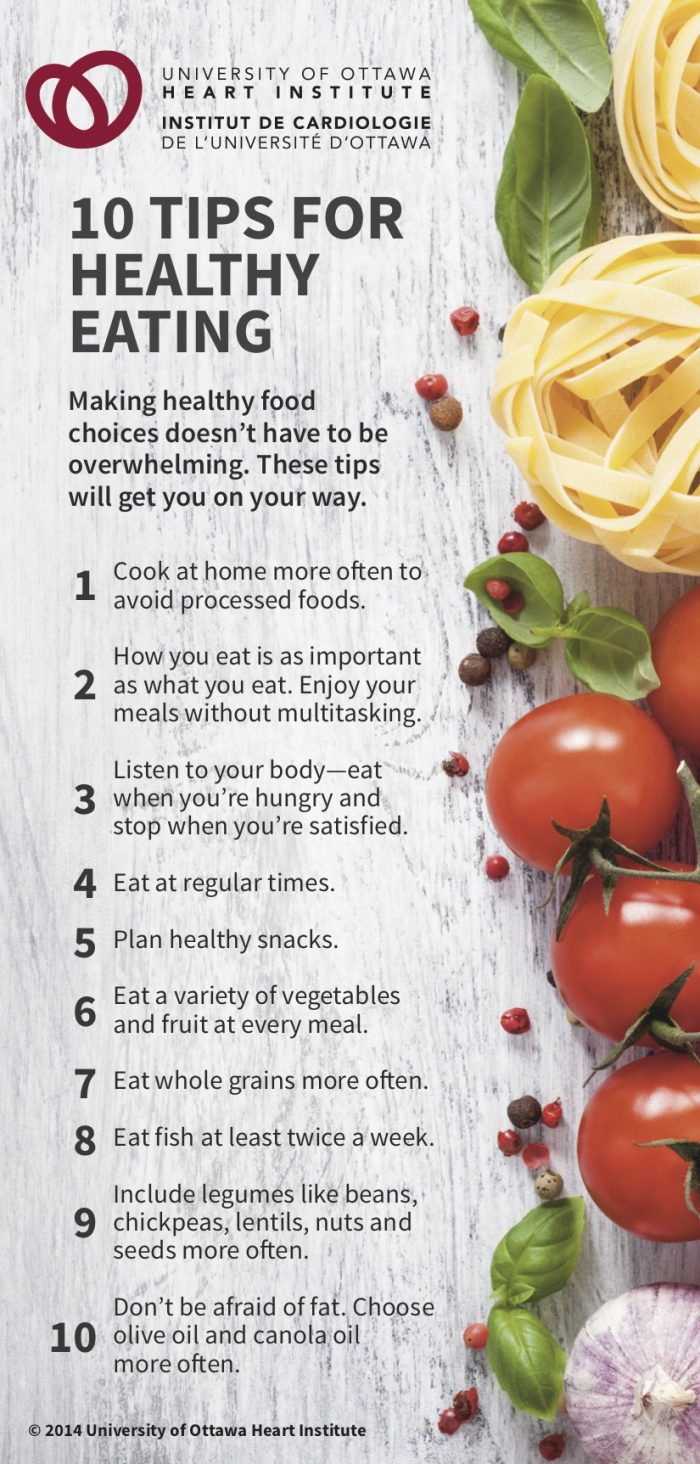Fact or Fad? Debunking Diet Trends

There is so much health information and advice circulating these days – from the keto diet to intermittent fasting, from cleansing to vitamin and mineral supplements – it can be hard to know what is healthy and what’s a trend. In her Nutrition 201 workshop, the Heart Institute’s Registered Dietitian, Kathleen Turner, debunks some of these fads. She shares her expertise on various diets and trends and provides her advice on what makes a truly healthy diet.
Have you considered …
… a gluten-free diet?
If you have celiac disease – that is, if your body does not tolerate gluten — you must maintain a gluten-free diet for life. There is no evidence, however, showing any health benefits from following a gluten-free diet if you do not have celiac disease. You can maintain a healthy eating pattern if you do choose to follow a gluten free diet by including whole grains such as quinoa, millet or wild rice.
… cleansing / detoxing?
‘Cleansing’ or ‘detoxing’ is often promoted to improve health by ‘cleansing’ the bowel and removing toxins. Advocates of these approaches suggest they have positive spiritual, psychological and physical impacts. However, there is little evidence that cleansing produces any health benefits. Weight loss achieved during a cleanse is generally related to loss of water weight, which is typically regained after returning to regular eating patterns. Cleansing products may even cause harmful side effects like nausea, a lack of energy, dehydration or negative interactions with medication.
… intermittent fasting?
Intermittent fasting involves restricting the hours during which you eat. There are several types of intermittent fasting, with varying amounts of research for each type that focuses mainly on weight loss. While research suggests that the success of intermittent fasting is primarily due to reducing total calories consumed, some people may find restricted hours helpful. Weight loss, however, is not the only component of health. At the end of the day this is another version of a diet, and Kathleen’s advice is to focus on an approach that works long term.
… a Keto diet?
This is not recommended for patients with heart disease as it tends to be high in saturated fats (animal fats) and low in fiber.There is very little data on the long-term health impacts of the keto diet. There are some concerns that there may be a risk of nutrient deficiency on the keto diet due to all of its food restrictions – including many foods with health benefits such as whole grains, legumes and fruit.
… vitamin and/or mineral supplements?
For most people, vitamin or mineral supplements are not needed with a healthy balanced diet. In fact, there is no evidence that taking a multivitamin has any health benefits. Some exceptions include folic acid supplements for pregnant women or women looking to conceive, as well as vitamin D supplements and choosing foods fortified with B12 or considering a B12 supplement if you have a B12 deficiency. If you have been prescribed a supplement by your physician, you should continue to take them as directed.
… a vegan or vegetarian diet?
With food choices that focus on vegetables and legumes, vegan and vegetarian diets bring health benefits that support healthy heart function. These diets are also gaining attention as they can be more environmentally friendly than consuming meat and fish. If you choose a vegan or vegetarian diet, it can take planning to get enough protein, iron, zinc, calcium, vitamin D, vitamin B12 and omega-3. Vegans should speak with their physician about vitamin B12 and iron. Regardless of whether you choose to become a vegetarian or vegan, everyone should aim to include more plant-based proteins in their diet.
… a Mediterranean diet?
Of all the diets and trends presented in this article, the Mediterranean diet has the most research-based benefits and links to heart health. The Mediterranean diet emphasizes fruits, vegetables, legumes, nuts and whole grains. Fish is consumed regularly and red meat is limited. Olive oil is the main source of fat and there is a moderate consumption of wine. Research shows that following the Mediterranean diet offers significant protection against diseases such as cardiovascular disease, cancer and neurodegenerative diseases. It is also associated with reduced overall mortality.
In addition to which foods you choose to eat, consider integrating the following into your lifestyle:
- Cook at home. Cooking at home generally reduces the salt and fat content of your meals.
- Socialize with others during meals. This makes meal times more than about consuming food, and also tends to slow food consumption.
- Whenever possible, choose seasonal, fresh, minimally processed foods to reduce salt, preservatives and artificial ingredients.
- Physical activity and rest are also considered important to heart healthy living.
Would you like to learn more?
- Visit this page for Kathleen’s complete guide to healthy eating, including her top recommendations, tips for avoiding or increasing your intake of certain heart healthy foods, and links to additional information.
- Attend the Nutrition 201 workshop to get more information on the diets described in this article or to ask questions.

